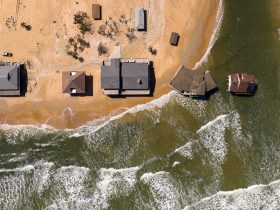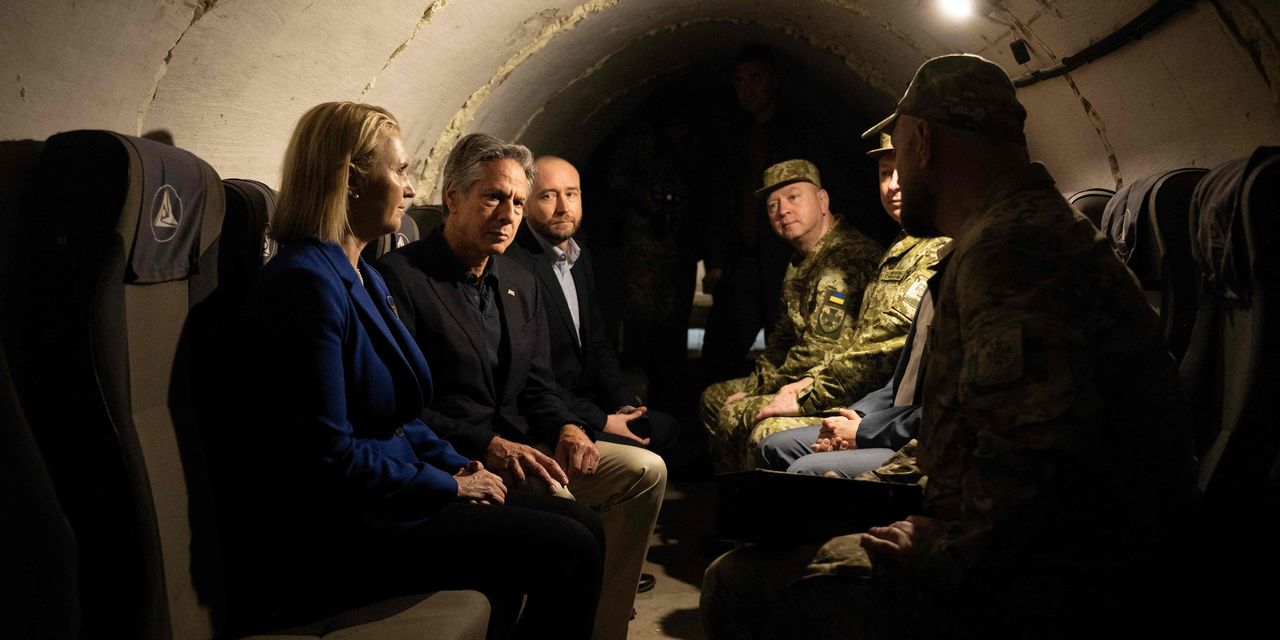Secretary of State Antony Blinken sidestepped questions on Sunday about reports that Elon Musk, CEO of SpaceX and Tesla
TSLA,
and owner of the social-media platform formerly known as Twitter, stymied the Ukrainian war effort last year by not enabling, or disabling, Starlink satellite internet access during a planned drone Black Sea attack on the Russian fleet.
Blinken was asked on CNN’s “State of the Union” about excerpts from a recent biography on Musk claimed indicating that the influential serial entrepreneur had rankled Ukrainian officials by not responding to their request to use Starlink for the maritime attack. “I can’t speak to a specific episode,” Blinken replied.
“Starlink has been a vital tool for Ukrainians to be able to communicate with each other and particularly for the military to communicate in their efforts to defend all of Ukraine’s territory,” Blinken added.
Musk has previously feuded with the U.S. government over what he said was a lack of compensation for his provision of Starlink access to Ukraine. The SpaceX-launched constellation of satellites can grant internet capabilities to areas otherwise too remote to connect.
The billionaire said last week that officials wanted him to provide internet access all the way to the Crimean Peninsula port city Sevastopol. Russia illegally annexed Crimea in 2014.
From the archives (February 2014): Russian influence that’s decried in Kyiv is welcomed in Crimea
Also see (March 2014): Putin: Russians are ‘always being cornered’
The internet access would have presumably been used to help orchestrate a major raid on Russian naval assets.
Musk declined to provide the access, keen, he said, on avoiding having SpaceX become “complicit in a major act of war and conflict escalation,” he said.
The “Elon Musk” book’s author, Walter Isaacson, later said that the Ukrainians “thought [Starlink] coverage was enabled all the way to Crimea, but it was not,” indicating that this is why some reports have suggested Musk cut off the access in question.
Officials in Kyiv reportedly maintain that the description of the incident as it appears in the Isaacson book is accurate.
The episode illustrated Musk’s influence, particularly given Starlink’s paramount importance to Ukrainian military communications.
“It sounds like Starlink’s so important that the U.S. government doesn’t want to risk offending a capricious billionaire,” CNN host Jake Tapper remarked to Blinken, who declined to comment further on the notion.
Musk has teased that SpaceX is crafting a “Starshield” system that will entail similar functionality to Starlink’s, but will “be owned and controlled by the U.S. government.”
Behind the scenes, the space tycoon fretted that Russia could retaliate against an attack on its naval fleet with nuclear weapons, according to Tapper.
Isaacson has echoed that.
“We ourselves have always had to factor in what Russia may do in response to any given thing that we or others do or the Ukrainians do,” Blinken noted.
Blinken declined to comment on whether any Musk’s correspondence with the Russian government alarmed him. “I can’t speak to conversations that may or may have not happened — I don’t know,” Blinken replied.
The secretary of state touched down in Ukraine last week and announced $1 billion in aid to the Eastern European country, under full-scale invasion by Russia since February 2022.
A version of this report has appeared at NYPost.com.
Read the full article here













Leave a Reply